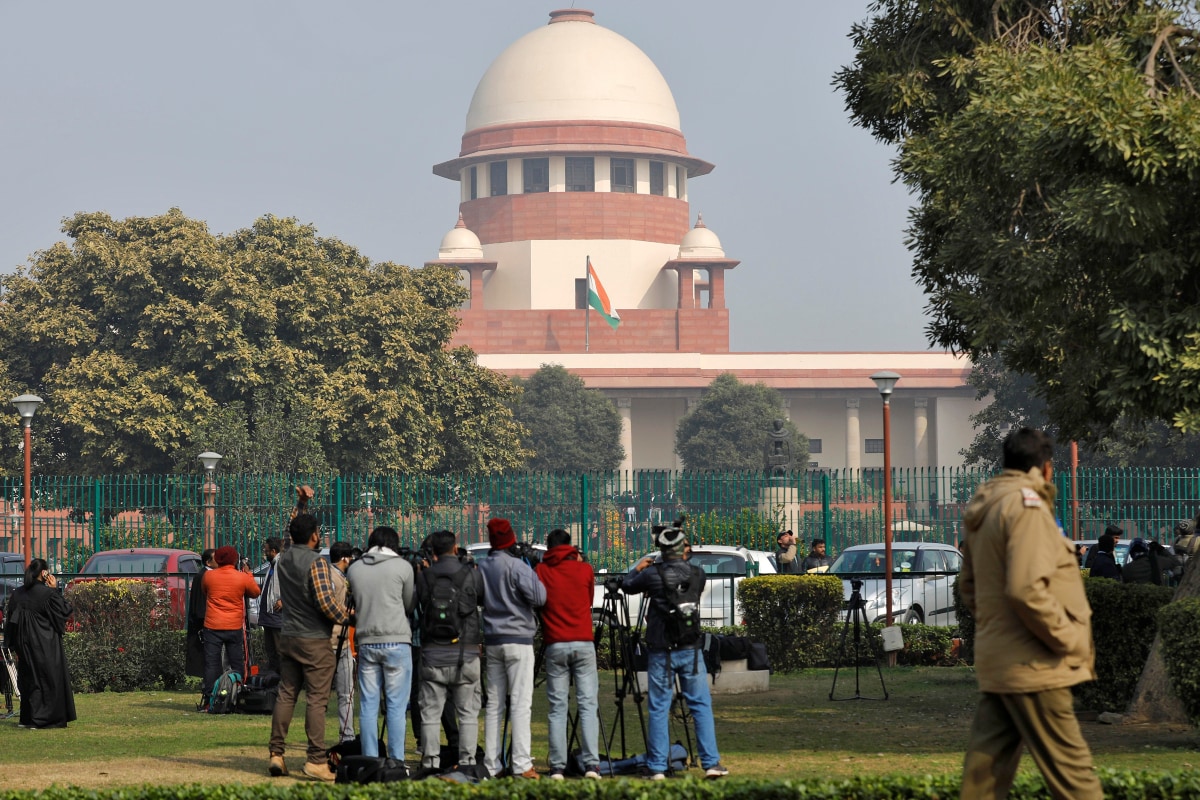

Television journalists are seen outside the Supreme Court premises in New Delhi on January 22, 2020 (REUTERS / Anushree Fadnavis).
The Ministry has submitted its response to a series of petitions against the television broadcast of a program on the Sudarshan television channel on the entry of Muslims into the civil service.
- CNN-News18
- Last update: September 17, 2020 9:54 AM M. IST
- FOLLOW US:
The central government has opposed the Supreme Court’s call for new guidelines to regulate television channels.
In its affidavit before the supreme court, the Ministry of Information and Broadcasting has said that a broader exercise, which is too general in nature, is neither justified nor permitted, as each matter will have to be judged on its own facts.
The Ministry has submitted its response to a series of petitions against the television broadcast of a program on the Sudarshan television channel on the entry of Muslims into the civil service.
A court, headed by Judge DY Chandrachud, had on Tuesday prevented the channel from airing subsequent episodes of this show and expressed its willingness to have a set of guidelines for electronic media.
In adjourning the matter to Thursday, the court also noted that it was considering having a panel of distinguished individuals suggest these guidelines.
But the opinions of the court have not found the favor of the government, which has said that there are already self-regulatory and statutory regimes to process complaints, in addition to the Supreme Court’s own rulings on this point.
“The subject of the present petition, namely, the balance between the freedom of the journalist and responsible journalism, is a field already occupied by the legal provisions issued by Parliament or by the judgments of this Honorable Court,” the affidavit states. .
He added: “The present petition must be limited to a single channel, namely Sudarshan TV, and this Honorable Court cannot undertake the exercise of establishing additional guidelines with or without the appointment of an Amicus or a Committee of people like Amicus.”
Alternatively, the government said that if the court is still willing to go ahead, the first set of regulations should come for digital media, which has a faster reach of a wider audience / reader range and has the potential to go viral. due to various applications like WhatsApp, Twitter and Facebook.
“There is no justification for limiting this exercise to only the main electronic media,” the affidavit said.
“Taking into account the serious impact and potential, it is desirable that if this Honorable Court decides to undertake the exercise, it is carried out first with regard to digital media, since there is already a sufficient framework and judicial pronouncements in relation to the media. electronic and printed media “, presented the government.
Citing two Supreme Court rulings from 2014 and 2017 that recognized the existence of a grievance redress mechanism for electronic media, the Ministry said that in view of the established legal position, the higher court cannot initiate a general exercise to establish guidelines throughout the territory. board.
.